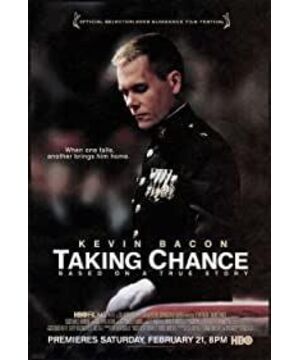Today, I am fortunate to have such an opportunity to watch the movie. In the lecture hall of Nuo University, in addition to the projection staff, there are only 6 audience members, quietly watching Chance's quiet way home. I thought I was an old fritters watching a movie, but my eyes turned red several times before I knew it.
There are many, many movies where details win, but this one is different. Details are not used to show any skills, nor are they used to set off any main lines. It was purely real, and later I found out that it was a remake of a self-documentary. In retrospect, it was really like a documentary shot. In ordinary real life, it's really moving, isn't it? !
We are not soldiers and will not respect the standard military salute, but we will use our own way to express our deepest respect for the departed. I am very willing to believe that the faces in the film, when they face the coffin of chance, their expressions are all real. They do not need any performance elements. Those who are willing to leave the country should just naturally think of the deceased in their hearts. That expression will appear naturally. But what I want to know more is whether such an emotion is the main theme among the American people and the American government? Can it influence the decision of the United States in the war?
ps: In the end, I will make a small joke in the heavy memory, the logistics in the United States is really good!
View more about Taking Chance reviews











